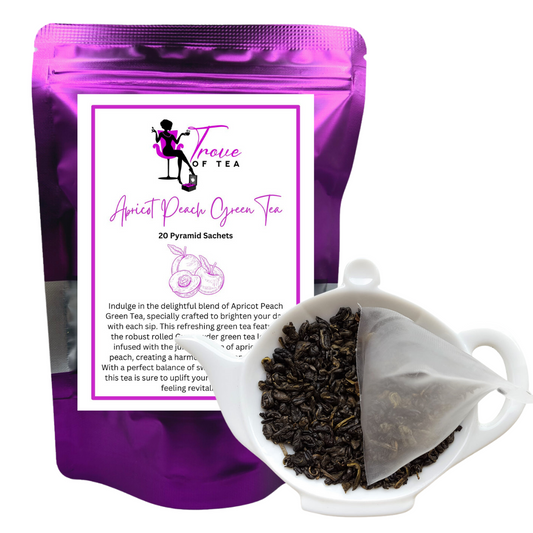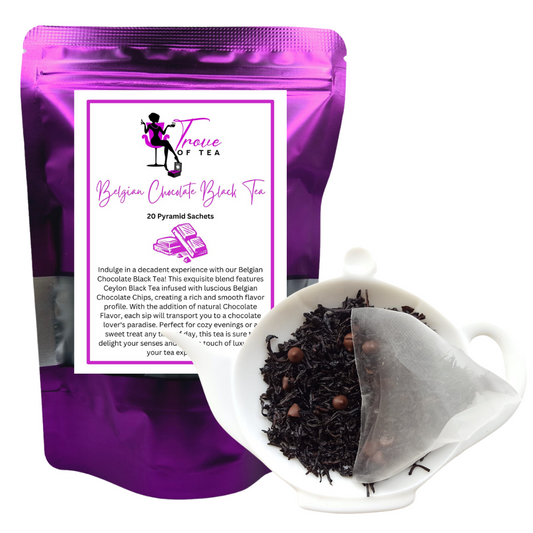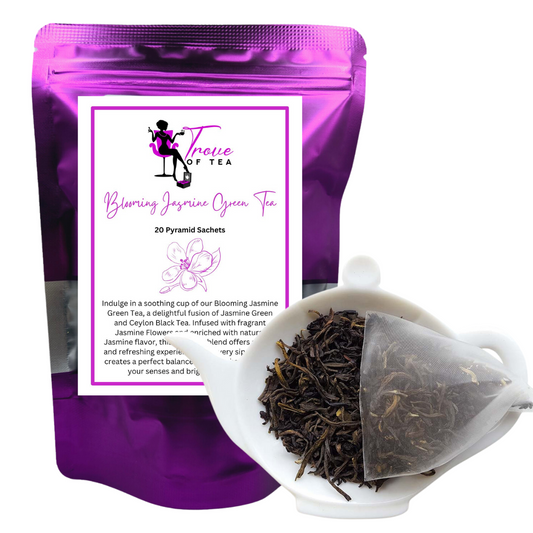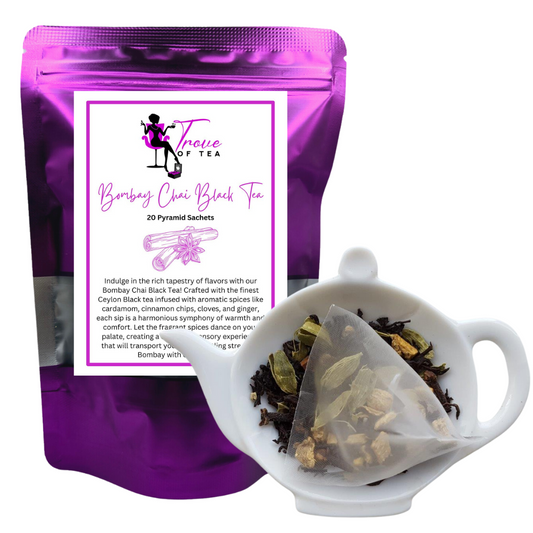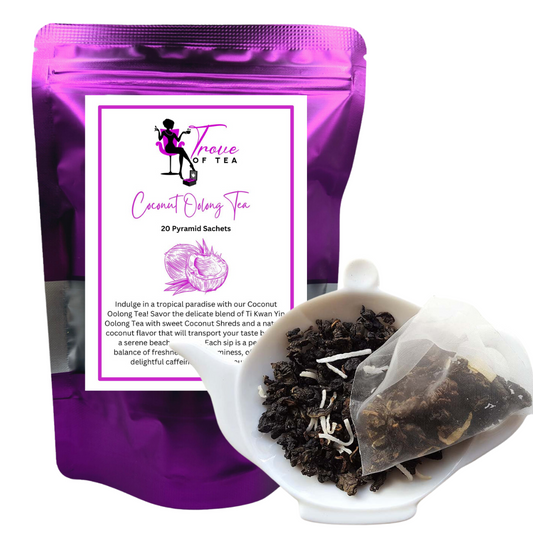
The Heart of Thanksgiving: Discovering What It Means to Praise the Lord
Trove of Tea ShopShare
Rediscovering God’s Definition of Thanksgiving
For many, Thanksgiving is synonymous with seasonal traditions—tables filled with food, laughter around a fire, and fleeting moments of gratitude. While these customs can be beautiful, the Bible gives thanksgiving a far deeper, more sacred meaning. According to Scripture, thanksgiving is not an annual ritual or a cultural habit but a posture of the heart—an act of worship that must be lived daily.
The Old Testament reveals that thanksgiving was originally expressed through literal offerings. In Leviticus, God commanded His people to bring sacrifices of thanksgiving—flesh, bread, and oil—as outward signs of reverence. Yet even then, the Lord was already pointing to a greater truth: He desired not empty ritual but obedience, humility, and reverence flowing from the heart. Psalm 40:6–8 affirms this shift: “Sacrifice and offering thou didst not desire… I delight to do thy will, O my God: yea, thy law is within my heart.”
True thanksgiving is not measured by what we say over a meal but by how we live before God. It is a rhythm of remembrance that keeps us from pride, a song of praise that lifts our hearts above circumstance, and a daily testimony of His goodness. This is why so many praise verses in the Bible command us to give thanks—not because God needs our words, but because we need the humility that gratitude produces.
So, as you pause to reflect on the heart of thanksgiving, consider pouring a warm cup of our Apple Cinnamon Herbal Tisane Tea. The sweet and spiced aroma mirrors the sweetness of God’s mercy, and each sip becomes an invitation to slow down, meditate, and let praise and thanksgiving scriptures wash over your soul. This small rhythm—time for tea and stillness before God—can transform ordinary moments into sacred space.
Ultimately, the heart of thanksgiving is not in ritual sacrifice but in living obedience. To praise God is to align your life with His Word. To offer Him thanks is to walk daily in humility and remembrance. And to truly understand thanksgiving is to see it not as seasonal, but as eternal.
Thanksgiving in the Old Testament—A Sacred Sacrifice
To understand the depth of thanksgiving in the Bible, we must look back to the Old Testament, where gratitude was tangible, sacrificial, and costly. Under the Law of Moses, thanksgiving offerings were not mere words spoken but sacrifices presented on the altar. Leviticus 7:12 instructs: “If he offer it for a thanksgiving, then he shall offer with the sacrifice of thanksgiving unleavened cakes mingled with oil…” These offerings included animals, bread, and oil—gifts that cost the giver something real.
Why was thanksgiving so costly? Because it reminded Israel that everything they had—life, harvest, protection, victory—was a gift from God. To offer thanksgiving meant acknowledging His ownership over all things. This is why psalms on thankfulness often pair gratitude with sacrifice. Psalm 107:21–22 says: “Oh that men would praise the Lord for his goodness… and let them sacrifice the sacrifices of thanksgiving, and declare his works with rejoicing.”
🕊️ Spiritual Insight: Thanksgiving in the Old Testament was not casual. It was an act of surrender, a declaration of dependence. To praise God through sacrifice was to say: “I am not my own; everything I have belongs to You.”
Yet even here, God hinted at a greater truth: that He desired the heart, not just the offering. Psalm 50:14–15 says: “Offer unto God thanksgiving; and pay thy vows unto the most High: and call upon me in the day of trouble: I will deliver thee, and thou shalt glorify me.” Thanksgiving was never meant to be transactional—it was always relational.
🫖 Tea Reflection: As you sip your tea, reflect on this: gratitude is not payment to God—it is partnership with Him. Each time we thank Him, we acknowledge Him as provider, sustainer, and Lord. Just as each sip of tea refreshes the body, each prayer of thanksgiving refreshes the soul.
The Shift from Ritual to Relationship—A Contrite Heart of Thanksgiving
While sacrifices defined Old Testament thanksgiving, God revealed through his prophets and psalms that what He truly desired was the offering of the heart. Psalm 51:16–17 declares: “For thou desirest not sacrifice; else would I give it… The sacrifices of God are a broken spirit: a broken and a contrite heart, O God, thou wilt not despise.”
This marks a powerful transition from ritual to relationship. God no longer looked for the blood of animals but for humility, surrender, and obedience. To give thanks was no longer about external rituals but about inward devotion. A contrite heart became the new altar of thanksgiving.
Deuteronomy 8:10 commands God’s people: “When thou hast eaten and art full, then thou shalt bless the Lord thy God for the good land which he hath given thee.” Gratitude was not optional—it was a command rooted in remembrance. Forgetting God after receiving His blessings led to pride, but thanksgiving anchored the people in humility and truth.
Psalm 40:8 adds: “I delight to do thy will, O my God: yea, thy law is within my heart.” Here we see the essence of thanksgiving: to praise God through obedience. Every act of surrender, every choice to walk in His Word, becomes a living sacrifice of thanksgiving.
🕊️ Spiritual Insight: Gratitude is more than words—it is obedience. Every time you align your actions with His commandments, you offer a more pleasing thanksgiving than any sacrifice of flesh.
🫖 Tea Reflection: As you pause with your cup of tea, ask yourself: Is my gratitude only spoken, or is it lived? Let each sip remind you that God no longer desires external rituals but inward faithfulness. Thanksgiving is not an event but a way of life.
Living Thanksgiving—Praise, Obedience, and Daily Worship
Thanksgiving, according to Scripture, is not a seasonal practice but a continual way of life. It is a daily rhythm of worship expressed in prayer, obedience, and testimony. Psalm 100:4 beautifully captures this: “Enter into his gates with thanksgiving, and into his courts with praise: be thankful unto him, and bless his name.” Gratitude is the key that opens the door into God’s presence.
The psalmist in Psalm 34:1 goes further: “I will bless the Lord at all times: his praise shall continually be in my mouth.” Notice that thanksgiving is not limited to good times. It is a continual posture of the soul—giving thanks and praise whether in blessing or in trial. To praise God in hardship is to acknowledge His sovereignty above our circumstances.
Isaiah 26:3 assures us: “Thou wilt keep him in perfect peace, whose mind is stayed on thee: because he trusteth in thee.” Gratitude is directly tied to peace. When we focus on God’s goodness instead of our worries, thanksgiving shifts our perspective and steadies our hearts.
Deuteronomy 6:5–7 reminds us that thanksgiving is generational: “Thou shalt love the Lord thy God with all thine heart…And these words, which I command thee this day, shall be in thine heart....and thou shalt teach them diligently unto thy children.” Teaching gratitude means reading praise verses in the Bible together, praying psalms on thankfulness as a family, and modeling thanksgiving in daily life.
🕊️ Spiritual Insight: Living thanksgiving means making your life a continual song of praise. It is not an occasional prayer but a daily offering.
🫖 Tea Reflection: Create rhythms of thanksgiving with time for tea moments. Begin your mornings by reading a praise the Lord Bible verse, pause in the afternoon with psalms on thankfulness, and close your evening in prayerful giving thanks and praise. Just as tea becomes a comforting routine, thanksgiving becomes a lifestyle when practiced daily.
Thanksgiving as Testimony—Proclaiming God’s Faithfulness
Thanksgiving is not meant to stay silent; it must be spoken and shared. One of the clearest praise and thanksgiving scriptures is Psalm 105:1–2: “O give thanks unto the Lord; call upon his name: make known his deeds among the people. Sing unto him, sing psalms unto him: talk ye of all his wondrous works.” Gratitude becomes testimony when we proclaim God’s goodness to others.
Your thanksgiving is not only personal worship—it is public witness. When you share a testimony, you give others a reason to trust God. When you recount His mercy, you sow seeds of faith. Deuteronomy 4:9 warns: “Only take heed to thyself… lest thou forget the things which thine eyes have seen, but teach them thy sons, and thy sons’ sons.” Forgetfulness breeds pride, but remembrance multiplies faith.
🕊️ Spiritual Insight: Thanksgiving is not complete until it is proclaimed. Every story of God’s faithfulness plants remembrance in the hearts of future generations.
🫖 Tea Reflection: Turn your time for tea into testimony time. Invite a friend or family member, read a praise verse in the Bible together, and share how God has been faithful to you. Gratitude multiplies when shared—spreading peace, joy, and faith wherever it is spoken.
Reflection & Journaling: A Contrite Heart of Thanksgiving
Sometimes, thanksgiving must move from thoughts and words into action, and one of the most powerful ways to deepen this practice is through reflection and journaling. The Bible gives us praise and thanksgiving scriptures that invite us not only to speak but also to meditate on God’s goodness. Writing these reflections helps to anchor gratitude in our hearts and pass it down as a testimony.
1. The Cost of Gratitude – In the Old Testament, sacrifices cost something tangible. Today, God calls us to offer our obedience instead of offerings of flesh. Journaling about what obedience looks like in your life can be a living psalm on thankfulness. Write where God is calling you to surrender pride, fear, or self-will. This transforms thanksgiving from ritual into daily worship.
2. The Contrite Heart – Psalm 51:16–17 shows us that true thanksgiving flows from a broken and contrite spirit. Reflect on areas in your life where resistance still lingers. Ask yourself: Is there a place where I say “thank You, Lord” with my lips but hold back obedience in my actions? Your journal can become a place of honest confession and renewed surrender.
3. Remembrance – Write three specific testimonies of God’s faithfulness this year. These become your personal “praise the Lord Bible verse” moments—memorials that you and future generations can look back on. Like the Israelites building memorial stones, your journal becomes a stone of remembrance.
4. Daily Devotion – Build a rhythm of thanksgiving by anchoring it to your day. In the morning, write out a praise verse in the Bible. At noon, pause with a time for tea and list one blessing you’ve received. At night, close with a short prayer of giving thanks and praise. This rhythm embeds gratitude into your lifestyle.
5. Praise as Testimony – Write your own psalm on thankfulness. Let your words flow as a song of praise. Don’t worry about formality; God delights in the sincere words of His children. This can become your personal praise and thanksgiving scripture, birthed from your own walk with Him.
🫖 Tea Reflection: As you sip your Tea during your journaling, let each sip be a reminder that gratitude is both soothing and strengthening. Just as tea warms the body, thanksgiving nourishes the soul.
Conclusion: Thanksgiving That Pleases God
Thanksgiving, as revealed in Scripture, is far more than a holiday tradition—it is a lifestyle of worship, obedience, remembrance, and testimony. From the costly sacrifices to the contrite hearts God now desires, we see a thread running throughout the Bible: true thanksgiving has always been about relationship, not ritual.
Psalm 116:17 beautifully sums it up: “I will offer to thee the sacrifice of thanksgiving, and will call upon the name of the Lord.” This verse captures both sides of gratitude—sacrifice and praise. Giving thanks and praise is not something we do only when life feels abundant; it is the continual recognition of God’s sovereignty, faithfulness, and love.
Living in thanksgiving means that every act of obedience becomes worship. Every prayer of gratitude becomes a testimony. Every shared story of God’s goodness becomes a seed of faith planted in another’s heart. Gratitude is contagious—it multiplies when spoken and transforms when lived.
So, let every day be filled with praise. Begin with a praise verse in the Bible in the morning, meditate on psalms of thankfulness throughout the day, and close each evening in reflection. Let your home be filled with the sound of praise God commands—spoken, sung, and lived.
🫖 Final Tea Reflection: As you finish your reflection with a warm cup of Apple Cinnamon Herbal Tisane Tea, let its aroma remind you of the sweetness of God’s mercy. Each sip can be a small act of thanksgiving, a rhythm of remembrance, and a quiet declaration of praise.
Your thanksgiving is no longer a ritual sacrifice—it is your life. A life bowed in humility, lifted in worship, and poured out in obedience.





